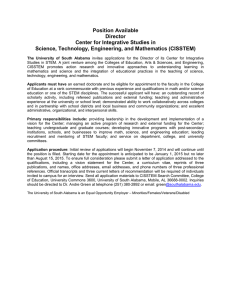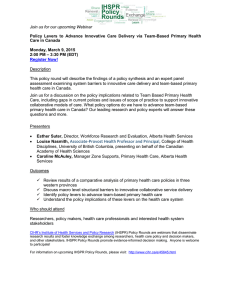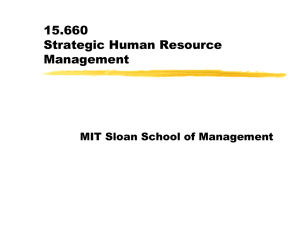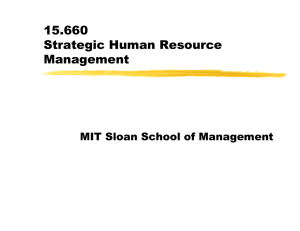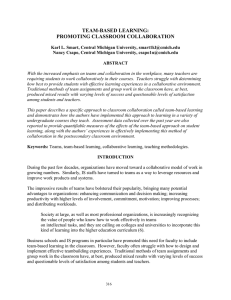FOCUS INVOLVEMENT
advertisement
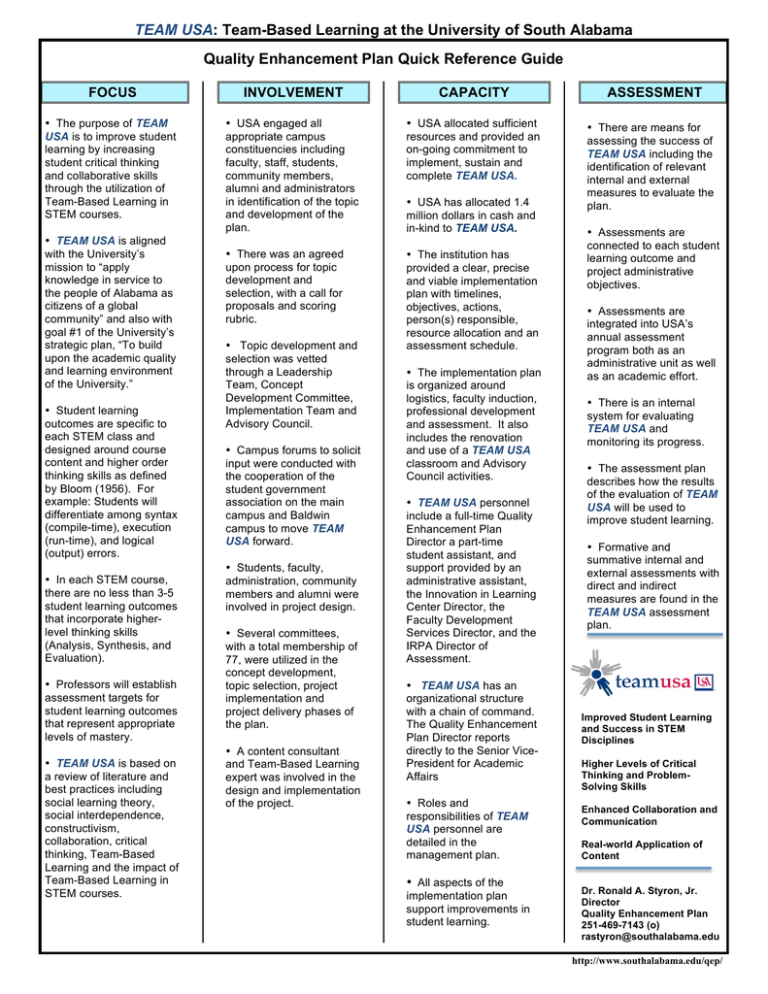
TEAM USA: Team-Based Learning at the University of South Alabama Quality Enhancement Plan Quick Reference Guide FOCUS INVOLVEMENT CAPACITY • The purpose of TEAM USA is to improve student learning by increasing student critical thinking and collaborative skills through the utilization of Team-Based Learning in STEM courses. • USA engaged all appropriate campus constituencies including faculty, staff, students, community members, alumni and administrators in identification of the topic and development of the plan. • USA allocated sufficient resources and provided an on-going commitment to implement, sustain and complete TEAM USA. • There was an agreed upon process for topic development and selection, with a call for proposals and scoring rubric. • The institution has provided a clear, precise and viable implementation plan with timelines, objectives, actions, person(s) responsible, resource allocation and an assessment schedule. • TEAM USA is aligned with the University’s mission to “apply knowledge in service to the people of Alabama as citizens of a global community” and also with goal #1 of the University’s strategic plan, “To build upon the academic quality and learning environment of the University.” • Student learning outcomes are specific to each STEM class and designed around course content and higher order thinking skills as defined by Bloom (1956). For example: Students will differentiate among syntax (compile-time), execution (run-time), and logical (output) errors. • In each STEM course, there are no less than 3-5 student learning outcomes that incorporate higherlevel thinking skills (Analysis, Synthesis, and Evaluation). • Professors will establish assessment targets for student learning outcomes that represent appropriate levels of mastery. • TEAM USA is based on a review of literature and best practices including social learning theory, social interdependence, constructivism, collaboration, critical thinking, Team-Based Learning and the impact of Team-Based Learning in STEM courses. • Topic development and selection was vetted through a Leadership Team, Concept Development Committee, Implementation Team and Advisory Council. • Campus forums to solicit input were conducted with the cooperation of the student government association on the main campus and Baldwin campus to move TEAM USA forward. • Students, faculty, administration, community members and alumni were involved in project design. • Several committees, with a total membership of 77, were utilized in the concept development, topic selection, project implementation and project delivery phases of the plan. • A content consultant and Team-Based Learning expert was involved in the design and implementation of the project. • USA has allocated 1.4 million dollars in cash and in-kind to TEAM USA. • The implementation plan is organized around logistics, faculty induction, professional development and assessment. It also includes the renovation and use of a TEAM USA classroom and Advisory Council activities. • TEAM USA personnel include a full-time Quality Enhancement Plan Director a part-time student assistant, and support provided by an administrative assistant, the Innovation in Learning Center Director, the Faculty Development Services Director, and the IRPA Director of Assessment. • TEAM USA has an organizational structure with a chain of command. The Quality Enhancement Plan Director reports directly to the Senior VicePresident for Academic Affairs • Roles and responsibilities of TEAM USA personnel are detailed in the management plan. • All aspects of the implementation plan support improvements in student learning. ASSESSMENT • There are means for assessing the success of TEAM USA including the identification of relevant internal and external measures to evaluate the plan. • Assessments are connected to each student learning outcome and project administrative objectives. • Assessments are integrated into USA’s annual assessment program both as an administrative unit as well as an academic effort. • There is an internal system for evaluating TEAM USA and monitoring its progress. • The assessment plan describes how the results of the evaluation of TEAM USA will be used to improve student learning. • Formative and summative internal and external assessments with direct and indirect measures are found in the TEAM USA assessment plan. Improved Student Learning and Success in STEM Disciplines Higher Levels of Critical Thinking and ProblemSolving Skills Enhanced Collaboration and Communication Real-world Application of Content Dr. Ronald A. Styron, Jr. Director Quality Enhancement Plan 251-469-7143 (o) rastyron@southalabama.edu http://www.southalabama.edu/qep/
